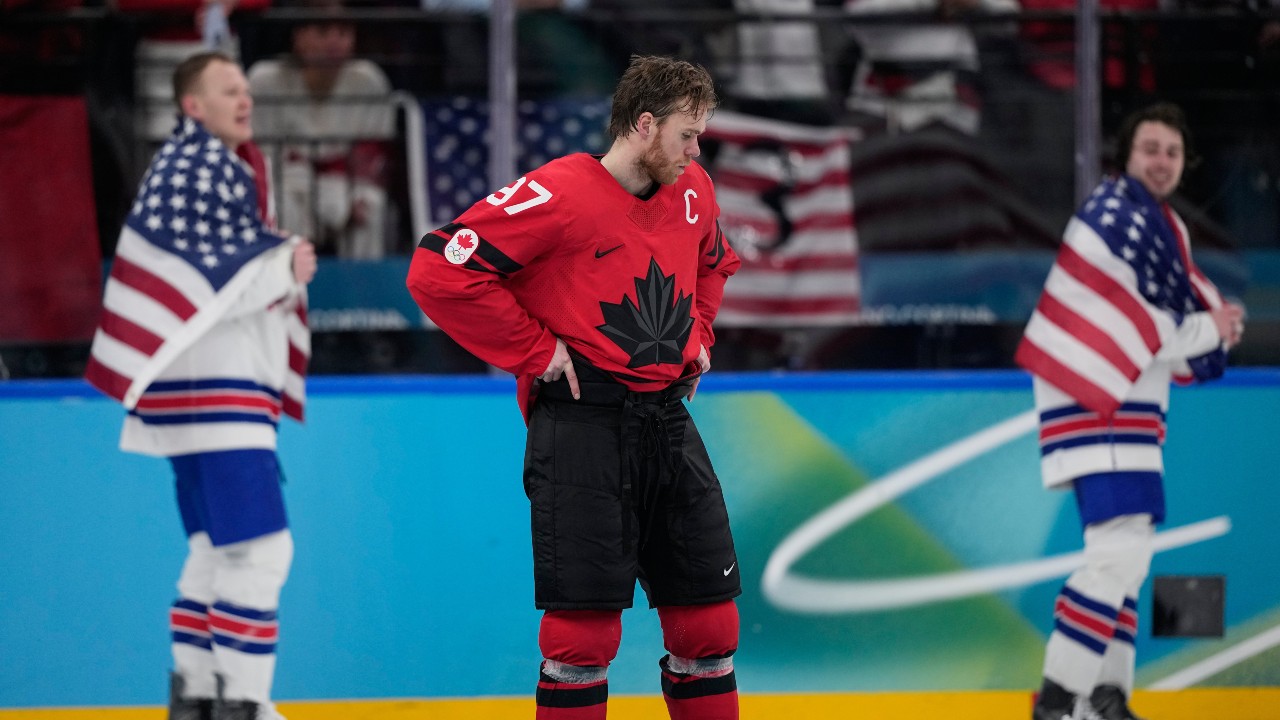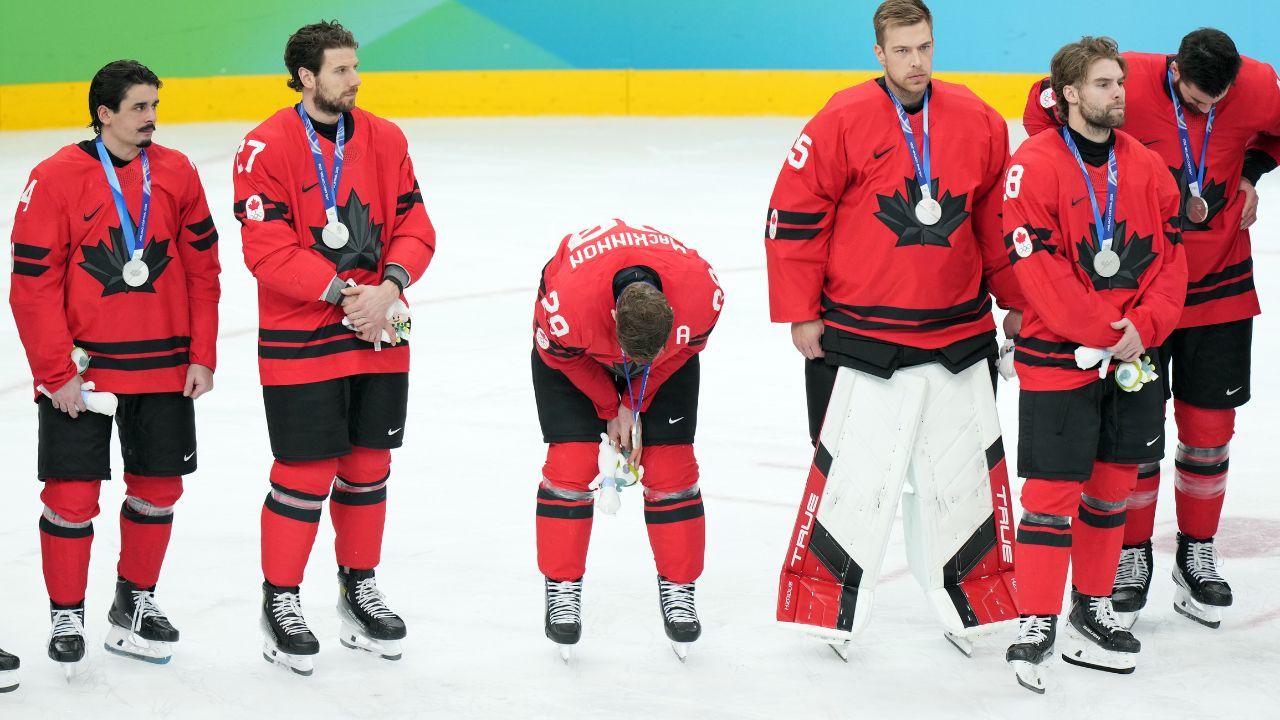
It was Game 1 of the 1988 World Series and Kirk Gibson had just hit a pinch-hit, walk-off home run. The Los Angeles Dodgers, considered underdogs against the powerful Oakland Athletics, rushed to home plate to greet Gibson, who had been thought to be unavailable due to injuries in both legs.
Within the broadcast booth at Dodger Stadium, Vin Scully sat at the mic. The words he found were perfect — even poetic.
“In a year that has been so improbable, the impossible has happened,” he said.
The call would go down as maybe the most iconic of his 67 years in the booth. Yet what preceded it was equally telling about Scully, who died on Tuesday at the age of 94: 67 seconds of silence.
“That really is my trademark,” Scully would later say. “Day to day, week in, week out. If something happens and the crowd roars, I shut up.”
Of course, he made plenty of time for talking, too. As a broadcaster, Scully’s style was elegant and conversational — even funny (“Statistics are used much like a drunk uses a lamppost,” he once said. “For support, not illumination”). Anyone listening could sense his love for the game and the curiosity that drove him to uncover the stories he’d share, slowly but surely, with his audience.
Over the years he called some of the biggest moments in baseball history, but his legacy extends far beyond any single accomplishment or moment. What’s most remarkable about Scully is the way he endeared himself to generations of baseball fans not only in Brooklyn and Los Angeles, but across the sport.

Born in the Bronx on Nov. 27, 1927, he grew up a New York Giants fan, occasionally attending games at the Polo Grounds. After spending two years in the Navy, he attended Fordham University, where he played some baseball and began his broadcasting career by calling football, basketball and baseball games for the university station WFUV.
Soon after graduating, Scully earned a job with CBS radio to cover college football, but it wasn’t long before his focus would return to baseball. In 1950, he joined Red Barber and Connie Desmond on the Brooklyn Dodgers’ radio and television broadcast team. By 1953, he was the Dodgers’ lead broadcaster. That fall, when the Dodgers faced the New York Yankees in the World Series, Scully became the youngest person ever to broadcast a World Series game.
By then, Scully had already developed his own way of bringing his audience closer to the game.
“The game is just one long conversation, and I’m anticipating that, and I will say things like ‘Did you know that?’ or ‘You’re probably wondering why,’” he once explained. “I’m really just conversing rather than just doing play-by-play.”
When the Dodgers moved West in 1958, Scully went with them. Over the course of the decades to come, he called thousands of games that would soon be forgotten and a select few destined for the history books. Among his more memorable calls: Sandy Koufax’s four no-hitters, Hank Aaron’s record-breaking 715th home run, Bill Buckner’s error in Game 6 of the 1986 World Series and Gibson’s famous 1988 home run.
“It may sound corny,” Koufax once said, “but I enjoyed listening to Vin call a game almost more than playing in them.”
In 1982, Scully won the Ford C. Frick Award from the National Baseball Hall of Fame for his contributions to the game as a broadcaster. Years later, in 2016, he obtained the Presidential Medal of Freedom.
But even as the accolades piled up and Scully aged well into his 80s, he kept broadcasting. The longevity that endeared him to fans impressed fellow broadcast veterans like Jerry Howarth. Early in his career, the longtime Blue Jays broadcaster was so impressed with Scully’s sense of fairness that he went out of his way to introduce himself. Right away, Howarth found Scully to be uncommonly friendly and the two stayed in touch over the years.
Decades later, long after the now-retired Howarth had become a fixture in the Blue Jays’ broadcast booth, he could only marvel at Scully’s staying power. While driving home from the ballpark one night late in the season, a realization struck him.

“After my 33rd year, I’m mentally patting myself on the back for another year,” Howarth recalled. “And I go, ‘33! Vin Scully’s done twice that much. He’s been broadcasting 66 years!’”
In 2016, after 67 seasons broadcasting Dodgers baseball, Scully retired at the age of 88. The voice that had told the story of the Dodgers for decades would no longer be on the air every evening from spring until fall.
But the next time a broadcaster falls silent and lets the sound of the game take over for a moment, you might hear an echo of Scully. As he once said, “The roar of the crowd has always been the sweetest music. It’s intoxicating.”






